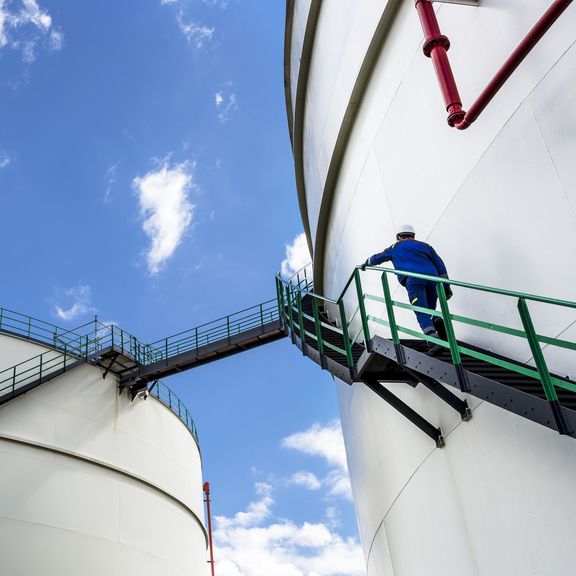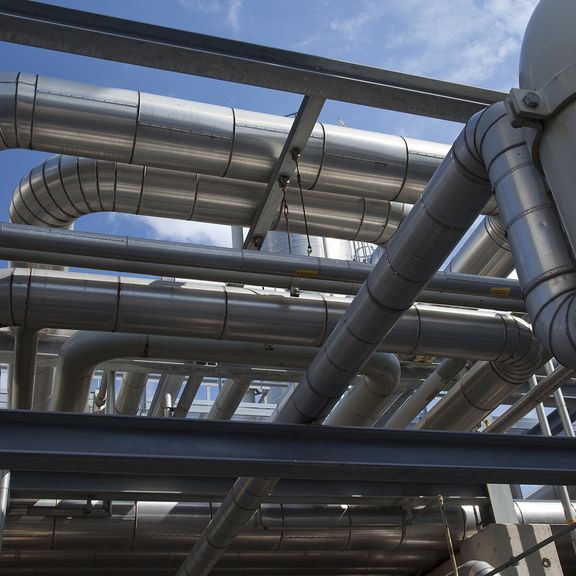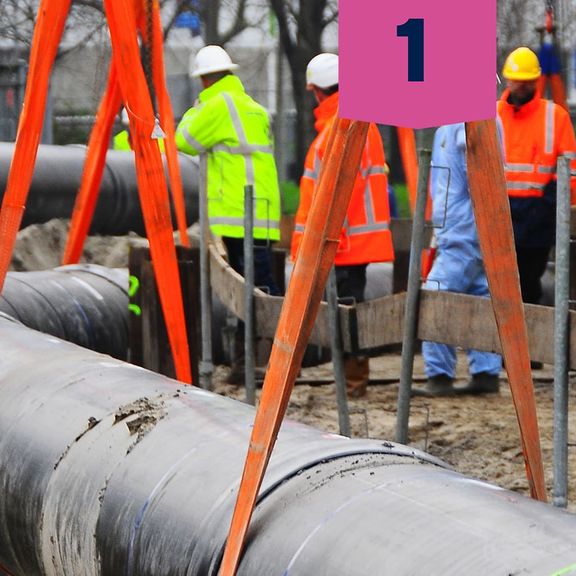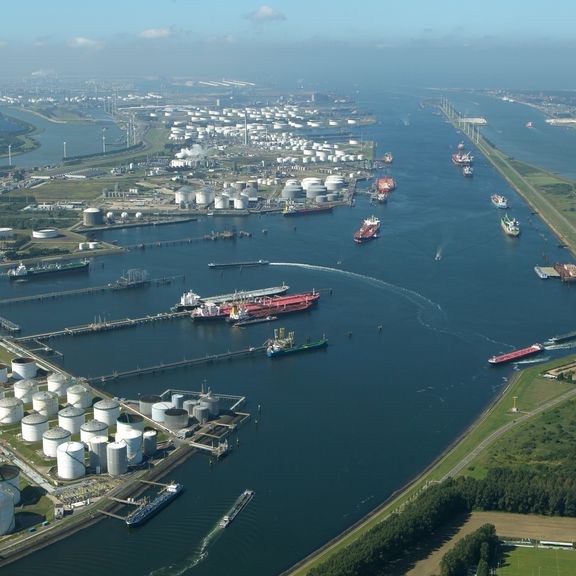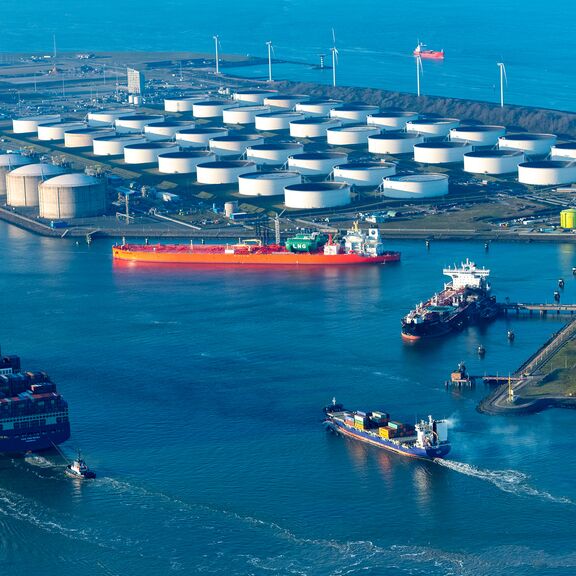
Process industry
The Port Industrial Complex includes refineries, chemical factories, biofuel factories and vegetable oil refineries. Combined with the storage of these products, the port of Rotterdam is a strong and integrated chemical and petrochemical cluster.
The presence of a large number of chemical companies and refineries in the Rotterdam port area ensures optimum efficiency. For example, the oil refineries supply raw materials to the chemical industry and various chemical companies then supply semi-finished products to other parties. Collaborations and sharing also occur in terms of tank storage, industrial gases, heat, steam, wastewater treatment and electricity. This synergy provides an extremely efficient and profitable business climate for all chemical companies active in Rotterdam.
Port of Rotterdam’s ambition is to be a CO2-neutral and circular port by 2050. As it stands, the existing process industry contributes to a large part of the cluster’s total CO2 emissions. The Port of Rotterdam Authority is therefore involved in many projects and initiatives to reduce the emissions of the process industry. In the future, the industry will use a broader mix of (sustainable) raw materials to produce various products whereby they will increasingly transform towards energy and chemicals parks.
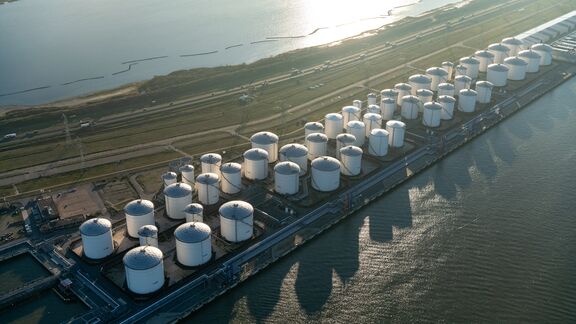
Fuels
Production, trade, storage and handling of (bio)fuels come together in the port of Rotterdam. The port’s location is ideal for the supply and removal of both the raw materials as well for producing (bio)fuels from around the world.
Rotterdam has five refineries that process oil into various fuels and products that form the basis of the chemical products we use daily. These refineries are in transition to prepare for the future towards integrated and diverse energy parks, where both crude oil as well as renewable raw materials are converted into fuels and products for instance.
As well as these refineries, Rotterdam also has various production locations for biofuels, including biodiesel, renewable diesel, Sustainable Aviation Fuel (SAF) and bioethanol. These biofuels are used for road transport, shipping and aviation, for example. These biofuels require other raw materials than traditional crude oil. As the largest port in Europe, Rotterdam offers the advantage that raw materials can be cheaply supplied and stored per vessel throughout the year and from around the world. Rotterdam is currently the world’s largest industrial cluster where biomass is used as a raw material.
An overview of the existing refineries and biofuel producers can be found on the interactive map.
Chemical industry
The production, storage and handling of raw materials and chemical products come together in the port of Rotterdam. The port’s location is ideal for the supply and removal of the raw materials to produce chemical products from around the world.
The chemical industry is responsible for many products we use daily and that determine our prosperity to a high degree. Rotterdam plays a key role in this important sector with more than 40 production companies and various terminals. The safety standards are high and there is continuous investment in improving the (digital) infrastructure and facilities.
We use products produced by the chemical sector every day, from clothing and packaging to make-up and cars. Various factories that produce raw materials or manufacture an end product are established in Rotterdam. These factories are often connected in one way or another.
To stay competitive in a global market, there is a good connection between chemical clusters in Northwest Europe, for example, Antwerp, Rotterdam and Chemelot.
The Port of Rotterdam Authority and its clients are working on various initiatives to maintain a strong chemical cluster in the future. For example, using residual heat (via steam), the use of energy and product flows of other companies in the cluster and using waste and circular raw materials. There are opportunities for young innovative companies, for example, to test their technology and factory in a commercial way, for example at Plant One.
Food & Feed
With several refineries for refining vegetable oils and fats and a crusher for oily seeds in the port, the port of Rotterdam plays a vital role in the supply and removal of edible oils for the European food and animal feed industry. In Rotterdam, oils including palm oil, sunflower oil, rapeseed oil and coconut oil are stored on a large scale and sometimes refined and processed in Rotterdam.
Processes taking place in Rotterdam include bleaching, deodorising, filtering and blending. There are also extensive facilities for packaging and transport. Oils and fats can for instance be transported in bulk, but also packed in drums or jerrycans and tank containers.
Storage
Tank storage fulfils an essential role in supply chains of liquid products. It plays a role in production, for distribution, import and export and for strategic storage for the food industry, fuels, chemicals and the development of sustainable products. Each type of storage has specific requirements related to safety, environmental protection and technical specifications, depending on the nature of the stored liquid and the legislation.
The decision to establish or use tank storage in the port of Rotterdam is paired with attractive logistics benefits due to the choice of various tank storage suppliers and the considerable number of connections by sea and the hinterland via road, inland shipping, pipelines and rail.
More information? Contact:
